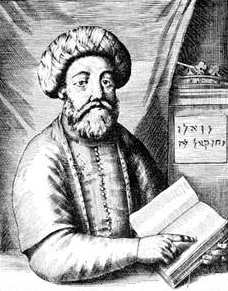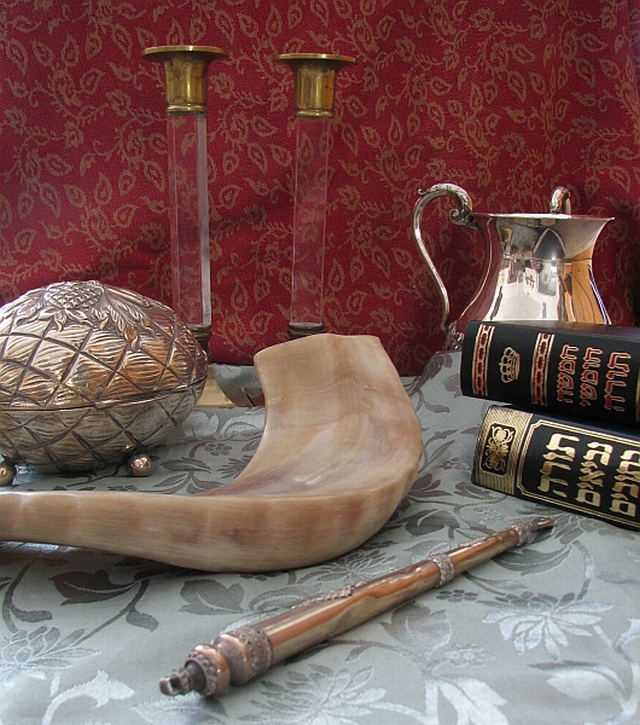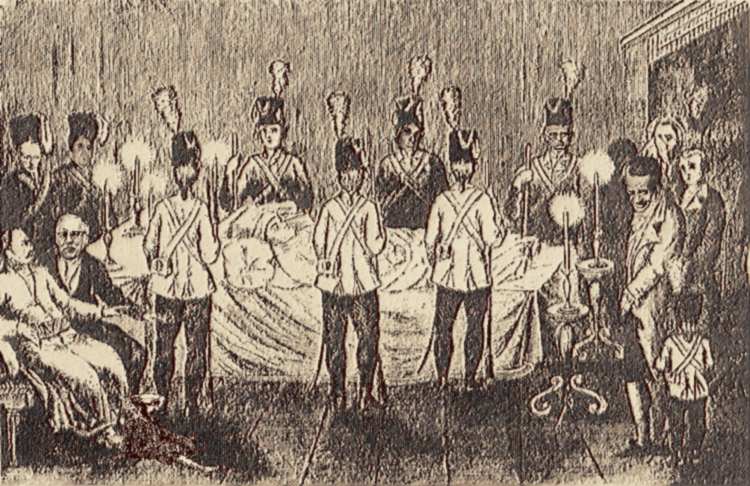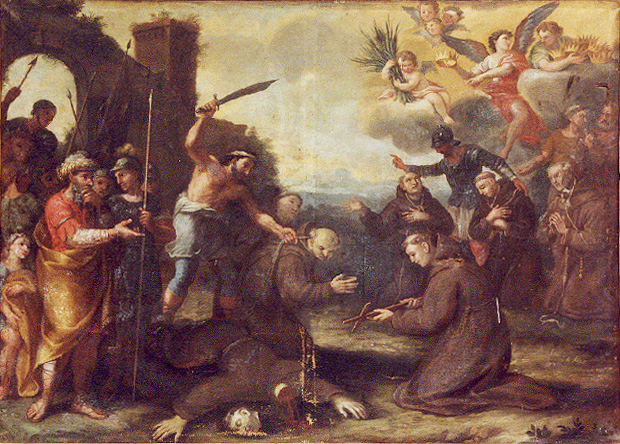|
Dönmeh
The Dönme ( he, דוֹנְמֶה, Dōnme, ota, دونمه, tr, Dönme) were a group of Sabbatean crypto-Jews in the Ottoman Empire who converted outwardly to Islam, but retained their Jewish faith and Kabbalistic beliefs in secret. The movement was centered mainly in Thessaloniki. It originated during and soon after the era of Sabbatai Zevi, a 17th-century Sephardic Jewish Rabbi and Kabbalist who claimed to be the Jewish Messiah and eventually feigned conversion to Islam under threat of death from the Sultan Mehmed IV. After Zevi's forced conversion to Islam, a number of Sabbatean Jews purportedly converted to Islam and became the Dönme. Some Sabbateans lived on into 21st-century Turkey as descendants of the Dönme. Today it is unclear how many people stil call themselves Dönme although some still live in Teşvikiye in Istanbul. Most are buried in the Bülbüldere Cemetery (AKA Selanikliler Mezarlığı or the Cemetery of the Salonicans) in Üsküdar where, unusual ... [...More Info...] [...Related Items...] OR: [Wikipedia] [Google] [Baidu] |
Sabbateans
The Sabbateans (or Sabbatians) were a variety of Jewish followers, disciples, and believers in Sabbatai Zevi (1626–1676), a Sephardic Jewish rabbi and Kabbalist who was proclaimed to be the Jewish Messiah in 1666 by Nathan of Gaza. Vast numbers of Jews in the Jewish diaspora accepted his claims, even after he outwardly became an apostate due to his forced conversion to Islam in the same year. Sabbatai Zevi's followers, both during his proclaimed messiahship and after his forced conversion to Islam, are known as Sabbateans. Part of the Sabbateans lived on until well into 21st-century Turkey as descendants of the Dönmeh. Sabbatai Zevi Sabbatai Zevi was a Sephardic ordained rabbi from Smyrna (now İzmir, Turkey). A kabbalist of Romaniote origin, Zevi, who was active throughout the Ottoman Empire, claimed to be the long-awaited Jewish Messiah. He was the founder of the Sabbatean movement, whose followers subsequently were to be known as Dönmeh "converts" or crypto-Jews. ... [...More Info...] [...Related Items...] OR: [Wikipedia] [Google] [Baidu] |
List Of Jewish Messiah Claimants
The messiah in Judaism means "anointed one" and included Jewish priests, prophets and kings such as David and Cyrus the Great. Later, especially after the failure of the Hasmonean Kingdom (37 BCE) and the Jewish–Roman wars (66–135 CE), the figure of the Jewish messiah was one who would deliver the Jews from oppression and usher in an Olam HaBa ("world to come") or Messianic Age. Some people were looking forward to a military leader who would defeat the Seleucid or Roman enemies and establish an independent Jewish kingdom. Others, like the author of the Psalms of Solomon, stated that the messiah was a charismatic teacher who would give the correct interpretation of Mosaic law, restore Israel, and judge mankind. This is a list of notable people who have been said to be the messiah ben David, either by themselves or by their followers. The list is divided into categories, which are sorted according to date of birth (where known). 1st century *Jesus of Nazareth (ca. 4 BC– ... [...More Info...] [...Related Items...] OR: [Wikipedia] [Google] [Baidu] |
Crypto-Judaism
Crypto-Judaism is the secret adherence to Judaism while publicly professing to be of another faith; practitioners are referred to as "crypto-Jews" (origin from Greek ''kryptos'' – , 'hidden'). The term is especially applied historically to Spanish Jews who outwardly professed Catholicism, also known as Conversos, Marranos, or the Anusim. The phenomenon is especially associated with Renaissance Spain, following the Massacre of 1391 and the expulsion of the Jews in 1492.Levine Melammed, Renee. "Women in Medieval Jewish Societies," in ''Women and Judaism: New Insights and Scholarship''. Ed. Frederick E. Greenspahn. New York: New York University Press, 2009. 105–106. Europe Officially, Jews who converted in Spain during the 14th and 15th centuries were known as ''Cristianos Nuevos'' (New Christians), but were commonly called '' conversos'' (converts o Christianity. Spain and Portugal passed legislation restricting their rights in the mother countries of Spain and Portug ... [...More Info...] [...Related Items...] OR: [Wikipedia] [Google] [Baidu] |
Jacob Frank
Jacob Joseph Frank ( he, יעקב פרנק; pl, Jakub Józef Frank; born Jakub Lejbowicz; 1726 – December 10, 1791) was a Polish-Jewish religious leader who claimed to be the reincarnation of the self-proclaimed messiah Sabbatai Zevi (1626–1676) and also of the biblical patriarch Jacob. The Jewish authorities in Poland excommunicated Frank and his followers due to his heretical doctrines that included deification of himself as a part of a trinity and other controversial concepts such as neo-Carpocratian "purification through transgression". Frank arguably created a new denomination of Judaism, now referred to as Frankism, which incorporated some aspects of Christianity into Judaism. The development of Frankism was one of the consequences of the messianic movement of Sabbatai Zevi. This religious mysticism followed socioeconomic changes among the Jews of Poland, Lithuania and Ruthenia. Historical background There were numerous Jewish secret societies of Sabbateans (fol ... [...More Info...] [...Related Items...] OR: [Wikipedia] [Google] [Baidu] |
Sabbatai Zevi
Sabbatai Zevi (; August 1, 1626 – c. September 17, 1676), also spelled Shabbetai Ẓevi, Shabbeṯāy Ṣeḇī, Shabsai Tzvi, Sabbatai Zvi, and ''Sabetay Sevi'' in Turkish, was a Jewish mystic and ordained rabbi from Smyrna (now İzmir, Turkey). A kabbalist of Romaniote or Sephardic origin, Zevi, who was active throughout the Ottoman Empire, claimed to be the long-awaited Jewish Messiah. He was the founder of the Sabbatean movement, whose followers subsequently came to be known as Dönme (converts) or crypto-Jews. Upon arriving in Constantinople in February 1666, Sabbatai was imprisoned on the order of the grand vizier Köprülüzade Fazıl Ahmed Pasha; in September of that same year, after being moved from different prisons around the capital to Adrianople, (modern Edirne, the imperial court's then seat) to be judged on accusations of fomenting sedition, Sabbatai was given the choice of either facing death by some type of ordeal, or of converting to Islam by the Gr ... [...More Info...] [...Related Items...] OR: [Wikipedia] [Google] [Baidu] |
Forced Conversion
Forced conversion is the adoption of a different religion or the adoption of irreligion under duress. Someone who has been forced to convert to a different religion or irreligion may continue, covertly, to adhere to the beliefs and practices which were originally held, while outwardly behaving as a convert. Crypto-Jews, crypto-Christians, crypto-Muslims and crypto-Pagans are historical examples of the latter. Religion and power In general, anthropologists have shown that the relationship between religion and politics is complex, especially when viewed over the expanse of human history.Firth, Raymond (1981Spiritual Aroma: Religion and Politics ''American Anthropologist'', New Series, Vol. 83, No. 3, pp. 582–601 While religious leaders and the state generally have different aims, both are concerned with power and order; both use reason and emotion to motivate behavior. Throughout history, leaders of religious and political institutions have cooperated, opposed one another, an ... [...More Info...] [...Related Items...] OR: [Wikipedia] [Google] [Baidu] |
Kabbalah
Kabbalah ( he, קַבָּלָה ''Qabbālā'', literally "reception, tradition") is an esoteric method, discipline and school of thought in Jewish mysticism. A traditional Kabbalist is called a Mekubbal ( ''Məqūbbāl'' "receiver"). The definition of Kabbalah varies according to the tradition and aims of those following it, from its origin in medieval Judaism to its later adaptations in Western esotericism ( Christian Kabbalah and Hermetic Qabalah). Jewish Kabbalah is a set of esoteric teachings meant to explain the relationship between the unchanging, eternal God—the mysterious '' Ein Sof'' (, ''"The Infinite"'')—and the mortal, finite universe (God's creation). It forms the foundation of mystical religious interpretations within Judaism. Jewish Kabbalists originally developed their own transmission of sacred texts within the realm of Jewish tradition and often use classical Jewish scriptures to explain and demonstrate its mystical teachings. These teachings are h ... [...More Info...] [...Related Items...] OR: [Wikipedia] [Google] [Baidu] |
Thessaloniki
Thessaloniki (; el, Θεσσαλονίκη, , also known as Thessalonica (), Saloniki, or Salonica (), is the second-largest city in Greece, with over one million inhabitants in its Thessaloniki metropolitan area, metropolitan area, and the capital city, capital of the geographic regions of Greece, geographic region of Macedonia (Greece), Macedonia, the administrative regions of Greece, administrative region of Central Macedonia and the Decentralized Administration of Macedonia and Thrace. It is also known in Greek language, Greek as (), literally "the co-capital", a reference to its historical status as the () or "co-reigning" city of the Byzantine Empire alongside Constantinople. Thessaloniki is located on the Thermaic Gulf, at the northwest corner of the Aegean Sea. It is bounded on the west by the delta of the Vardar, Axios. The Thessaloniki (municipality), municipality of Thessaloniki, the historical center, had a population of 317,778 in 2021, while the Thessaloniki metro ... [...More Info...] [...Related Items...] OR: [Wikipedia] [Google] [Baidu] |
Thou Shalt Not Commit Adultery
"Thou shalt not commit adultery" is found in the Book of Exodus of the Hebrew Bible. It is considered the sixth commandment by Roman Catholic and Lutheran authorities, but the seventh by Jewish and most Protestant authorities. What constitutes adultery is not plainly defined in this passage of the Bible, and has been the subject of debate within Judaism and Christianity. The word fornication means illicit sex, prostitution, idolatry and lawlessness. Religious views Judaism The mitzvah against adultery is interpreted to refer to sexual relations between a man and a married woman. The mitzvah are as follows: * Not to have intercourse with another man's wife. * There shall be no intercourse with a woman, without previous marriage with a deed of marriage and formal declaration of marriage. In the Torah, if a husband suspected his wife of adultery, there was a prescribed ordeal she underwent to determine her guilt or innocence. A separate procedure was to be followed if a n ... [...More Info...] [...Related Items...] OR: [Wikipedia] [Google] [Baidu] |
Psalms
The Book of Psalms ( or ; he, תְּהִלִּים, , lit. "praises"), also known as the Psalms, or the Psalter, is the first book of the ("Writings"), the third section of the Tanakh, and a book of the Old Testament. The title is derived from the Greek translation, (), meaning "instrumental music" and, by extension, "the words accompanying the music". The book is an anthology of individual Hebrew religious hymns, with 150 in the Jewish and Western Christian tradition and more in the Eastern Christian churches. Many are linked to the name of David, but modern mainstream scholarship rejects his authorship, instead attributing the composition of the psalms to various authors writing between the 9th and 5th centuries BC. In the Quran, the Arabic word ‘Zabur’ is used for the Psalms of David in the Hebrew Bible. Structure Benedictions The Book of Psalms is divided into five sections, each closing with a doxology (i.e., a benediction). These divisions were probably introdu ... [...More Info...] [...Related Items...] OR: [Wikipedia] [Google] [Baidu] |
Ten Commandments
The Ten Commandments ( Biblical Hebrew עשרת הדברים \ עֲשֶׂרֶת הַדְּבָרִים, ''aséret ha-dvarím'', lit. The Decalogue, The Ten Words, cf. Mishnaic Hebrew עשרת הדיברות \ עֲשֶׂרֶת הַדִּבְּרוֹת, ''aséret ha-dibrót'', lit. The Decalogue, The Ten Words), are a set of biblical principles relating to ethics and worship that play a fundamental role in Judaism and Christianity. The text of the Ten Commandments appears twice in the Hebrew Bible: at Exodus and Deuteronomy . According to the Book of Exodus in the Torah, the Ten Commandments were revealed to Moses at Mount Sinai and inscribed by the finger of God on two tablets of stone kept in the Ark of the Covenant. Scholars disagree about when the Ten Commandments were written and by whom, with some modern scholars suggesting that they were likely modeled on Hittite and Mesopotamian laws and treaties. Terminology The Ten Commandments, called (transliterated ) ... [...More Info...] [...Related Items...] OR: [Wikipedia] [Google] [Baidu] |
Brockhaus And Efron Jewish Encyclopedia E13 783-0
Brockhaus may refer to: * Friedrich Arnold Brockhaus (1772–1823), German encyclopedia publisher and editor ** F.A. Brockhaus AG, his publishing firm ** ''Brockhaus Enzyklopädie'', an encyclopedia published by the firm ** 27765 Brockhaus, an asteroid named for him * Hermann Brockhaus (1806–1877), German orientalist See also *Brockhaus and Efron Encyclopedic Dictionary The ''Brockhaus and Efron Encyclopaedic Dictionary'' ( Russian: Энциклопедический словарь Брокгауза и Ефрона, abbr. ЭСБЕ, tr. ; 35 volumes, small; 86 volumes, large) is a comprehensive multi-volume ..., a Russian-language encyclopedia {{disambiguation, surname German-language surnames ... [...More Info...] [...Related Items...] OR: [Wikipedia] [Google] [Baidu] |









